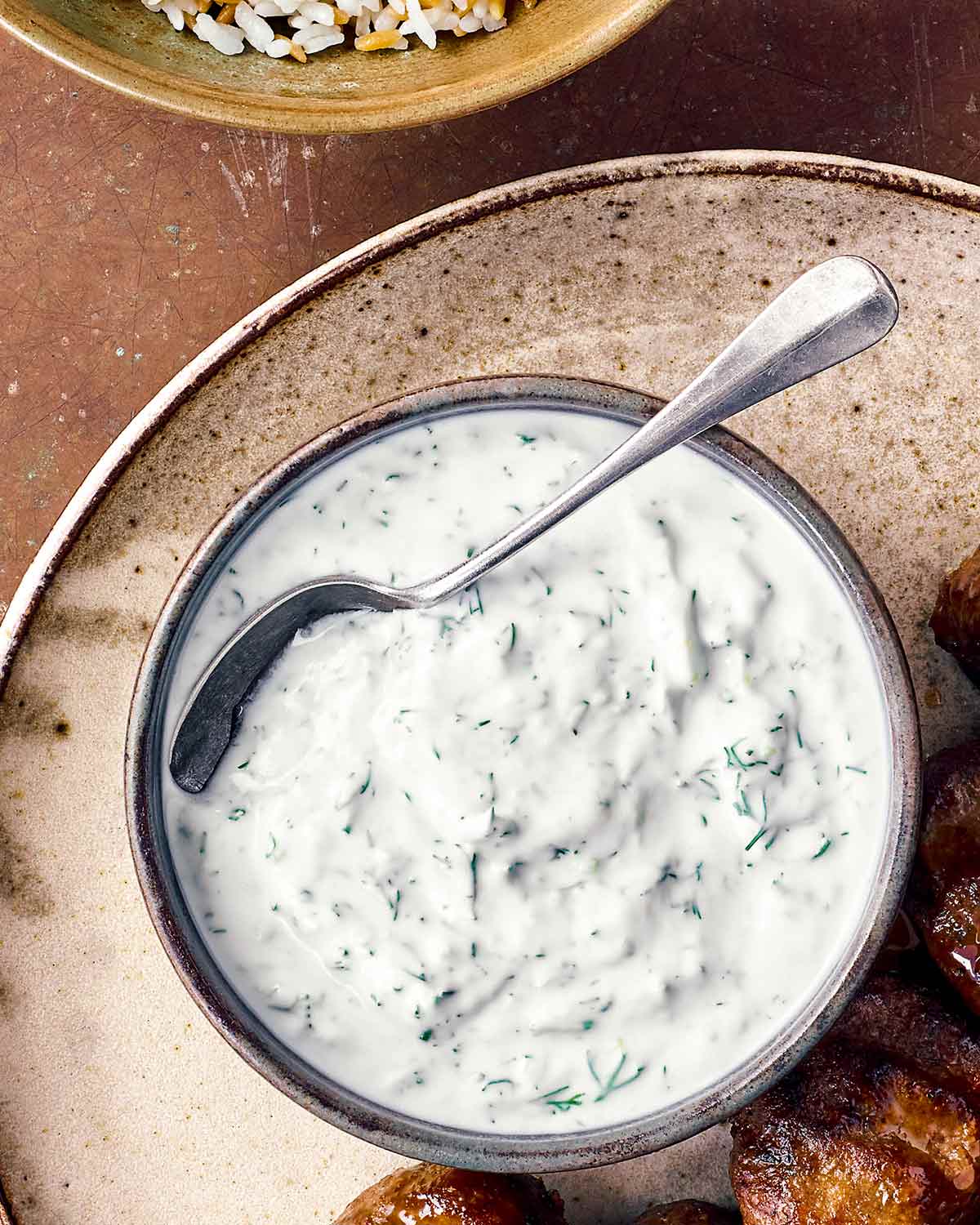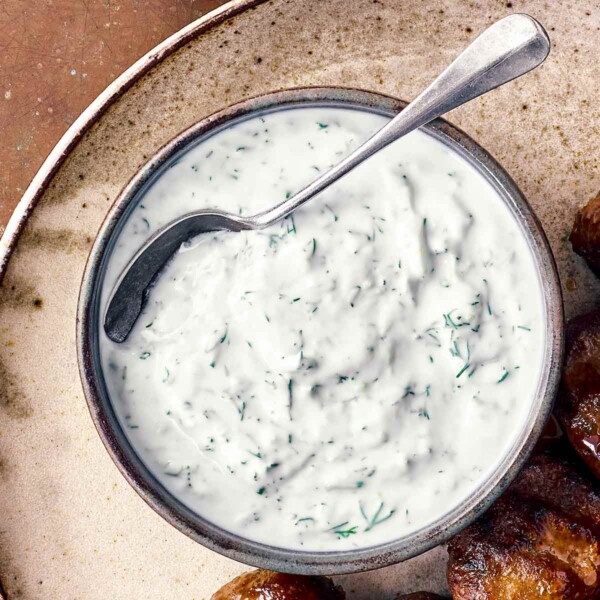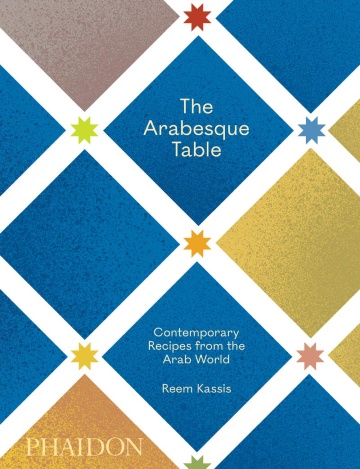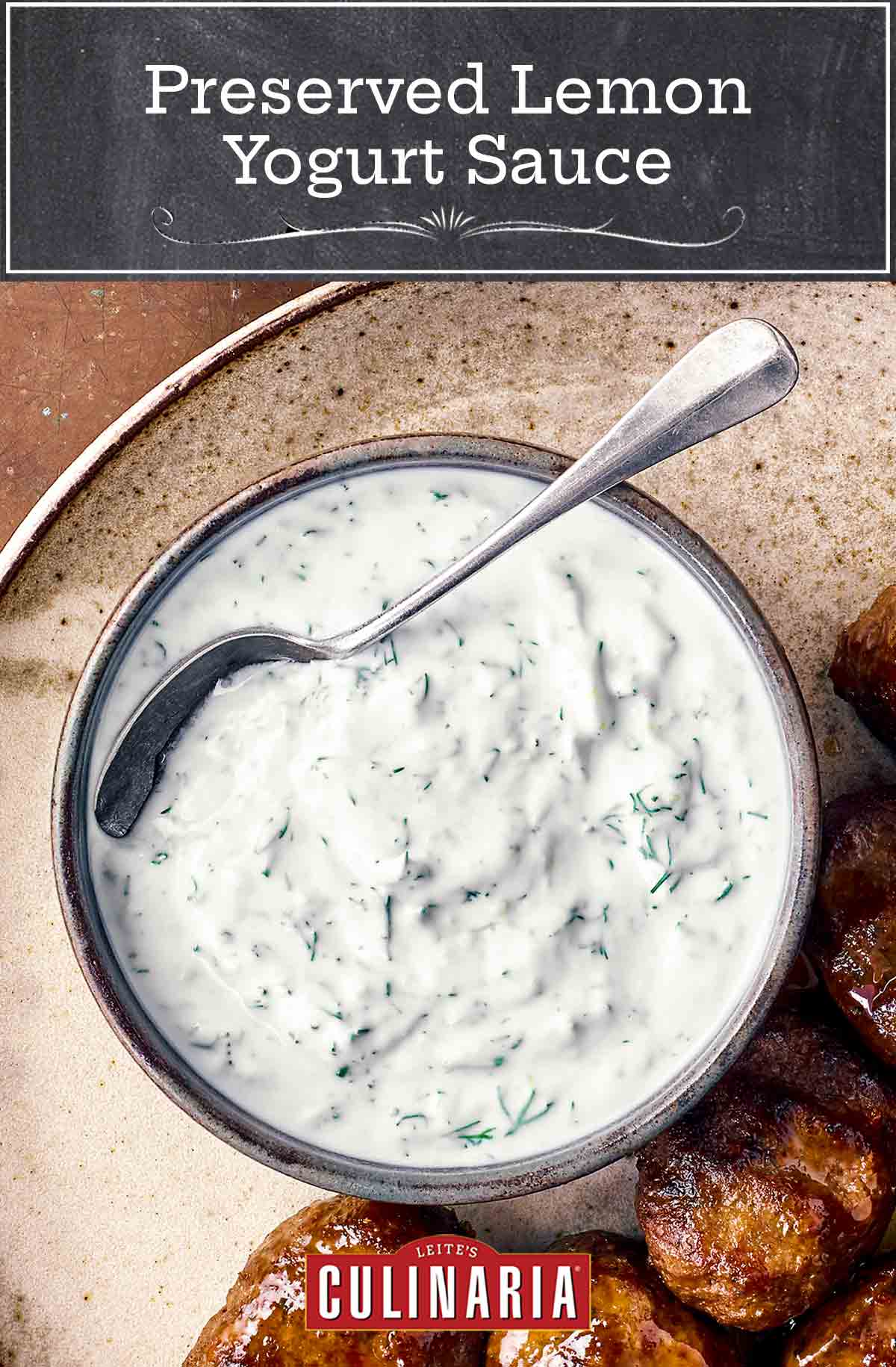
Dried, preserved lemons were a way to make things last from one season to the next, preserved lemons tend to be an ingredient that features heavily in North African cuisine. And now it’s made its way into our kitchens as well because it’s a flavor booster. It’s like lemon, which adds freshness. It’s kind of like salt, which enhances flavor, but it has multiple layers of flavor to it because you have the acidity from the lemon, but you also have a bit of bitterness from having preserved it for so long. And I think together those two things give you this umami combination of flavors that works wonderfully with many dishes. I often put it in my pasta sauces as well.–Reem Kassis

Preserved Lemon Yogurt Sauce
Ingredients
- 1 cup (8 oz) Greek yogurt, preferably full fat
- 1/4 rind of a large preserved lemon * or 1 full rind of a miniature lemon, preferably organic
- Small handful of fresh dill
- Salt
Instructions
- In a mini food processor or blender, combine the yogurt, lemon rind, and dill and pulse until smooth and evenly combined.
- Taste for salt, this will depend on how salty the preserved lemons you used are, add a pinch more if necessary. Refrigerate until ready to use.
☞ TESTER TIP: The flavor of the sauce improves over time, so do make at least a few hours ahead of when you plan to use it. This lemon yogurt sauce can be made up to a day in advance.
Notes
*Is there a substitute for preserved lemons?
Unfortunately, no. It’s been suggested that a load of lemon juice, zest, and salt can be swapped in but you’ll miss the big flavors of the process. There’s an inherently different flavor to lemons that have been left to their own devices in a jar of salt. They’re slightly bitter, silkier in texture, and have a big umami hit that you just can’t replicate. We can tell you, however, that Paula Wolfert has a pressure cooker-based solution that will infinitely speed up the process. Ta-da!
Explore More with AI
Nutrition
Nutrition information is automatically calculated, so should only be used as an approximation.
Recipe Testers’ Reviews
I’m a huge fan of kebabs and I have developed my own version through the years. I place a good dollop of sauce on flatbread, add a few kebabs, and voila, sheer Middle Eastern flavor explosions. Traditionally, I use tzatziki when I make kebabs, and this preserved lemon yogurt sauce is a great alternative.
This preserved lemon yogurt sauce is a great accompaniment and added counterpoint to a traditional kebab dish with its slightly lemony, dill flavor. I made the yogurt a few hours before serving it and stored it in the refrigerator. In addition to the preserved lemon, I added approximately 1/4 teaspoon of sea salt to bring out the flavor.
This preserved lemon yogurt sauce… well, let’s just say, it’s good on day one, better on day 2, and I can think of about 100 things it would be good with – and it couldn’t be easier. Combine the ingredients, blend, and taste for seasoning. That’s it. I had preserved lemons on hand so I used 1/4 of a large lemon. I refrained from rinsing the preserved lemon because the recipe called for salt.
To that, I added full-fat Greek yogurt and 10 oz of fresh dill. Next time I make this I’ll make 3 changes: 1) I’ll whiz it up in my Vitamix, not the food processor (I think it’s easier), 2) I’ll make it a day in advance, and 3) I’ll double the recipe and keep half for later in the week. It’s that good!














10 OUNCES of fresh dill? If you’re talking weight, that’s more than a half-pound. If you’re talking volume, it’s more than a cup. Is that a misprint in the letter?
Hi Ann, Thank you for your question. The recipe requires a “handful”, or about 7 grams of dill for the recipe. You are correct in that 10 ounces would be quite a lot! I hope that resolves your question.